Top 10 Gig Economy Startups in India
Top 10 Gig economy startups in India Discover the leading gig economy startups in India revolutionizing flexible work. Explore the top 10 innovative platforms offering freelancers and independent contractors unique opportunities across various sectors, including ride-sharing, food delivery, home services, and professional gigs. Stay informed about the companies driving the gig economy forward in India.
Table of Contents
1. UrbanClap (now Urban Company)
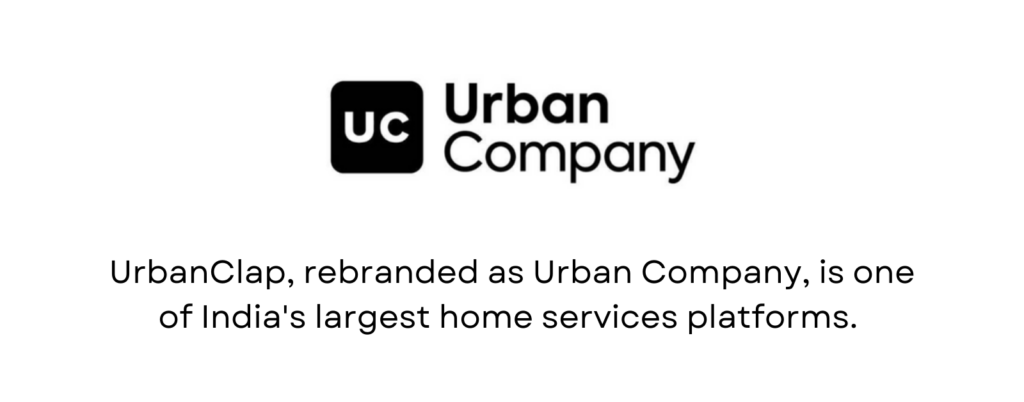
UrbanClap, rebranded as Urban Company, is one of India’s largest home services platforms. Founded in 2014 by Abhiraj Bhal, Raghav Chandra, and Varun Khaitan, it connects customers with professionals offering services such as beauty, home cleaning, plumbing, and more. The platform operates in several cities across India and has expanded to international markets. It aims to organize the unstructured services sector by providing reliable and high-quality services through trained professionals.
| Detail | Description |
|---|---|
| Founded | 2014 |
| Founders | Abhiraj Bhal, Raghav Chandra, Varun Khaitan |
| Headquarters | Gurugram, Haryana |
| Services | Home services (beauty, cleaning, plumbing) |
| Number of Cities | 50+ |
| Funding | $446 million (approx.) |
| Investors | Accel, Bessemer Venture Partners, Tiger Global |
| Employees | 1,000+ |
| Website | urbancompany.com |
2. Ola
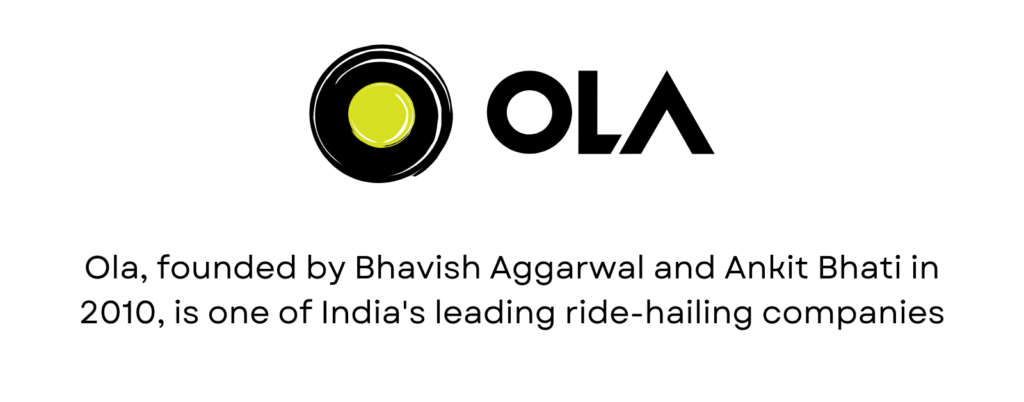
Ola, founded by Bhavish Aggarwal and Ankit Bhati in 2010, is one of India’s leading ride-hailing companies. It offers a wide range of services including cabs, auto-rickshaws, and bikes, catering to millions of users across the country. Ola has diversified its portfolio to include electric vehicles and financial services, making it a key player in India’s gig economy by providing employment opportunities to numerous drivers and delivery partners.
| Detail | Description |
|---|---|
| Founded | 2010 |
| Founders | Bhavish Aggarwal, Ankit Bhati |
| Headquarters | Bengaluru, Karnataka |
| Services | Ride-hailing (cabs, autos, bikes) |
| Number of Cities | 250+ |
| Funding | $4.3 billion (approx.) |
| Investors | SoftBank, Tencent, Sequoia Capital |
| Employees | 7,000+ |
| Website | ola.com |
3. Swiggy
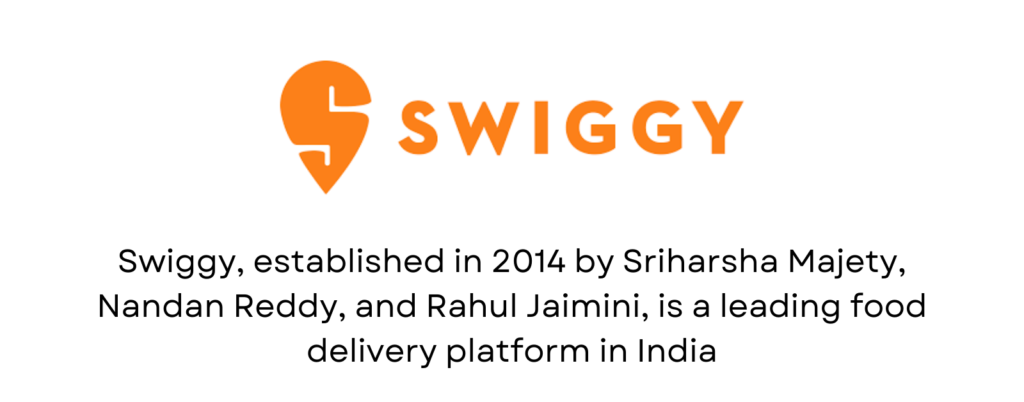
Swiggy, established in 2014 by Sriharsha Majety, Nandan Reddy, and Rahul Jaimini, is a leading food delivery platform in India. It connects customers with restaurants and delivery partners, ensuring quick and reliable food delivery services. Swiggy has expanded its services to include grocery delivery and other on-demand services, positioning itself as a comprehensive delivery platform in the gig economy.
| Detail | Description |
|---|---|
| Founded | 2014 |
| Founders | Sriharsha Majety, Nandan Reddy, Rahul Jaimini |
| Headquarters | Bengaluru, Karnataka |
| Services | Food and grocery delivery |
| Number of Cities | 500+ |
| Funding | $2.2 billion (approx.) |
| Investors | Prosus Ventures, Accel, Naspers |
| Employees | 5,000+ |
| Website | swiggy.com |
4. Zomato
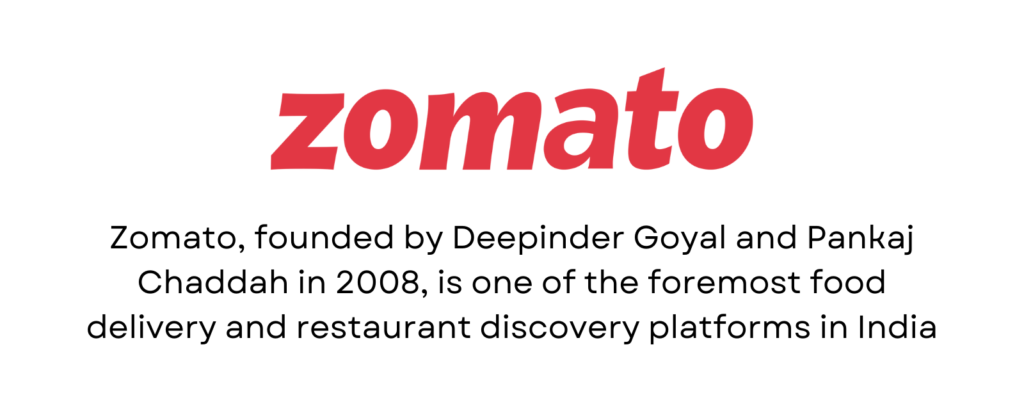
Zomato, founded by Deepinder Goyal and Pankaj Chaddah in 2008, is one of the foremost food delivery and restaurant discovery platforms in India. It offers a range of services including food delivery, table reservations, and restaurant reviews. Zomato has a strong presence in both Indian and international markets, continually expanding its service offerings to cater to a diverse customer base.
| Detail | Description |
|---|---|
| Founded | 2008 |
| Founders | Deepinder Goyal, Pankaj Chaddah |
| Headquarters | Gurugram, Haryana |
| Services | Food delivery, restaurant discovery |
| Number of Cities | 10,000+ |
| Funding | $2.5 billion (approx.) |
| Investors | Info Edge, Ant Financial, Sequoia Capital |
| Employees | 5,000+ |
| Website | zomato.com |
5. Dunzo
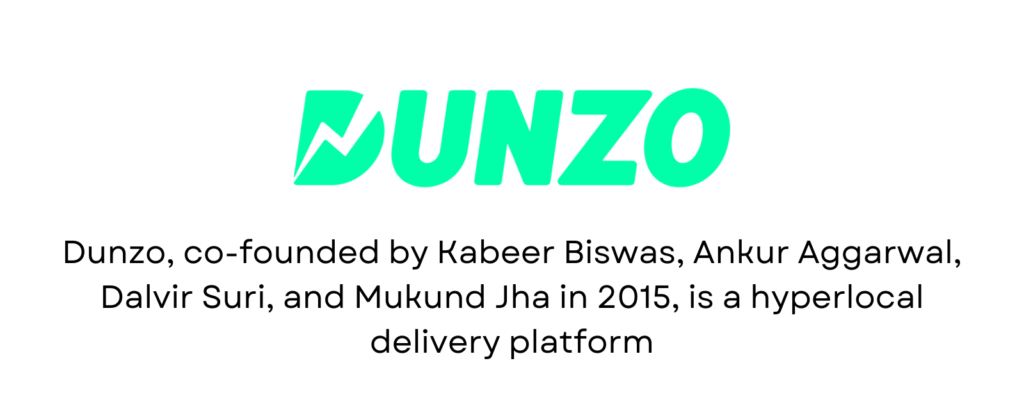
Dunzo, co-founded by Kabeer Biswas, Ankur Aggarwal, Dalvir Suri, and Mukund Jha in 2015, is a hyperlocal delivery platform. It facilitates the delivery of groceries, food, medicines, and other essentials within cities. With its on-demand delivery model, Dunzo has become a go-to service for quick and efficient last-mile delivery, supporting local merchants and gig workers.
| Detail | Description |
|---|---|
| Founded | 2015 |
| Founders | Kabeer Biswas, Ankur Aggarwal, Dalvir Suri, Mukund Jha |
| Headquarters | Bengaluru, Karnataka |
| Services | Hyperlocal delivery |
| Number of Cities | 10+ |
| Funding | $140 million (approx.) |
| Investors | Google, Lightbox, Blume Ventures |
| Employees | 1,000+ |
| Website | dunzo.com |
6. Porter

Porter, founded in 2014 by Pranav Goel, Uttam Digga, and Vikas Choudhary, is an intra-city logistics platform. It connects businesses and individuals with mini-truck drivers for efficient goods transportation within cities. Porter aims to optimize urban logistics by leveraging technology to provide reliable and cost-effective transport solutions, benefiting both customers and gig workers.
| Detail | Description |
|---|---|
| Founded | 2014 |
| Founders | Pranav Goel, Uttam Digga, Vikas Choudhary |
| Headquarters | Mumbai, Maharashtra |
| Services | Intra-city logistics |
| Number of Cities | 15+ |
| Funding | $65 million (approx.) |
| Investors | Sequoia Capital, Lightrock, Tiger Global |
| Employees | 800+ |
| Website | porter.in |
7. Housejoy

Housejoy, established in 2014 by Sunil Goel and Arjun Kumar, is a leading at-home services platform. It offers a variety of services such as home cleaning, beauty, plumbing, and electrical repairs. Housejoy connects customers with verified professionals, ensuring quality and convenience. The platform has grown to serve multiple cities, enhancing the gig economy by providing jobs to numerous service providers.
| Detail | Description |
|---|---|
| Founded | 2014 |
| Founders | Sunil Goel, Arjun Kumar |
| Headquarters | Bengaluru, Karnataka |
| Services | Home services (cleaning, beauty, repairs) |
| Number of Cities | 10+ |
| Funding | $30 million (approx.) |
| Investors | Matrix Partners, Amazon, GrowthStory |
| Employees | 500+ |
| Website | housejoy.in |
8. Uber India
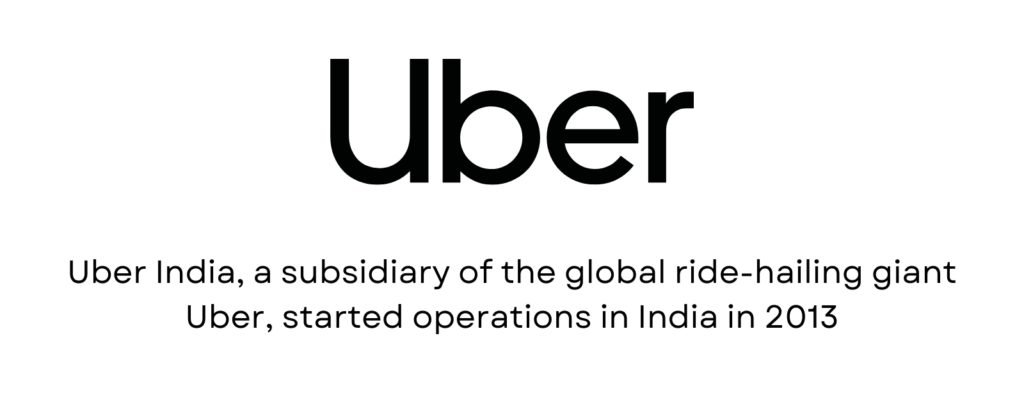
Uber India, a subsidiary of the global ride-hailing giant Uber, started operations in India in 2013. It offers a range of transportation services including cabs, autos, and bikes. Uber India has played a significant role in shaping the gig economy by providing flexible employment opportunities to thousands of drivers across the country, enhancing urban mobility and convenience.
| Detail | Description |
|---|---|
| Founded | 2013 |
| Founders | Travis Kalanick, Garrett Camp (Global) |
| Headquarters | San Francisco, USA |
| Services | Ride-hailing (cabs, autos, bikes) |
| Number of Cities | 50+ |
| Funding | N/A (Public Company) |
| Investors | Public (NYSE: UBER) |
| Employees | 22,800+ (Global) |
| Website | uber.com |
9. Rivigo
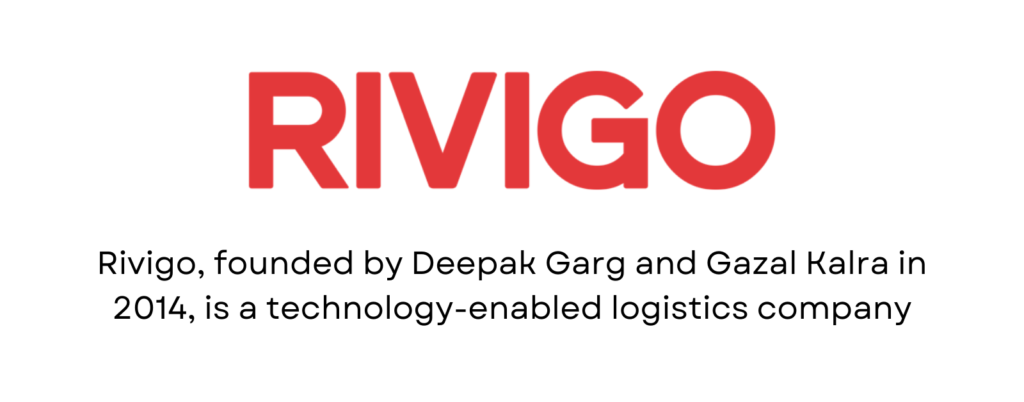
Rivigo, founded by Deepak Garg and Gazal Kalra in 2014, is a technology-enabled logistics company. It focuses on providing efficient and reliable logistics solutions through its relay trucking model, which reduces driver fatigue and improves delivery times. Rivigo leverages technology to optimize its operations, creating numerous job opportunities in the logistics sector.
| Detail | Description |
|---|---|
| Founded | 2014 |
| Founders | Deepak Garg, Gazal Kalra |
| Headquarters | Gurugram, Haryana |
| Services | Logistics and transportation |
| Number of Cities | 29+ |
| Funding | $275 million (approx.) |
| Investors | SAIF Partners, Warburg Pincus, Trifecta Capital |
| Employees | 3,000+ |
| Website | rivigo.com |
10. Grofers (now Blinkit)
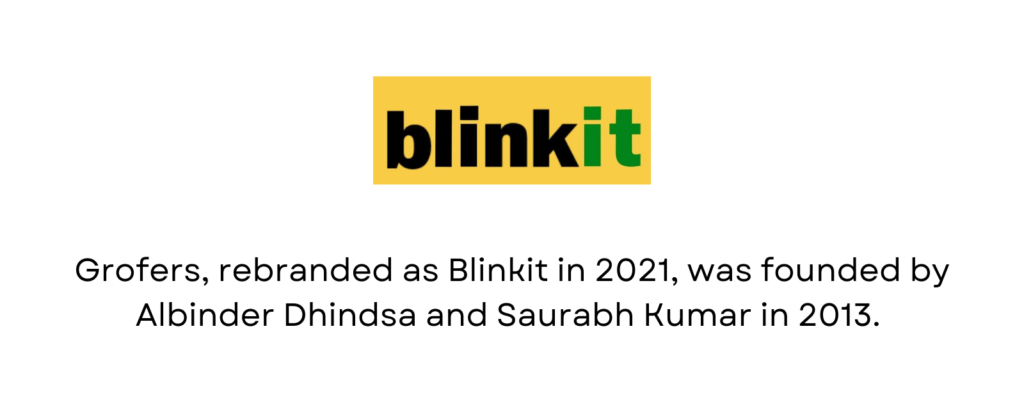
Grofers, rebranded as Blinkit in 2021, was founded by Albinder Dhindsa and Saurabh Kumar in 2013. It is a leading online grocery delivery service, providing customers with a wide range of products delivered within minutes. Blinkit leverages its network of dark stores and delivery partners to ensure quick and efficient service, significantly contributing to the gig economy by creating numerous delivery jobs.
| Detail | Description |
|---|---|
| Founded | 2013 |
| Founders | Albinder Dhindsa, Saurabh Kumar |
| Headquarters | Gurugram, Haryana |
| Services | Online grocery delivery |
| Number of Cities | 30+ |
| Funding | $550 million (approx.) |
| Investors | SoftBank, Tiger Global, Sequoia Capital |
| Employees | 2,000+ |
| Website | blinkit.com |
FAQs on Top Gig Economy Startups in India
Q1: What is the gig economy?
A1: The gig economy is a labor market characterized by short-term contracts or freelance work as opposed to permanent jobs. It includes individuals who work as freelancers, independent contractors, or part-time workers across various industries.
Q2: What are some of the benefits of working in the gig economy?
A2: Benefits include flexible working hours, the ability to choose projects, diverse work opportunities, and the potential to earn additional income.
Q3: What challenges do gig workers face?
A3: Gig workers may face challenges such as lack of job security, limited access to benefits like health insurance and retirement plans, income instability, and work-related stress.
Q4: How can someone join the gig economy?
A4: Individuals can join the gig economy by signing up on platforms that offer freelance or part-time opportunities. These platforms typically require basic information, skill verification, and sometimes a background check.
Q5: How do gig economy startups ensure the quality of service?
A5: Startups often implement measures such as background checks, training programs, customer feedback systems, and quality assurance protocols to ensure high service standards.
Q6: What services do Urban Company provide?
A6: Urban Company offers home services including beauty and wellness, home cleaning, plumbing, electrical repairs, and appliance servicing.
Q7: How can I book a ride with Ola?
A7: You can book a ride with Ola through their mobile app by entering your pick-up and drop-off locations, selecting the vehicle type, and confirming the booking.
Q8: What payment methods are accepted by Swiggy and Zomato?
A8: Both Swiggy and Zomato accept payments via credit/debit cards, net banking, UPI, and digital wallets.
Q9: How does Dunzo facilitate quick deliveries?
A9: Dunzo uses a network of local delivery partners and dark stores to ensure quick and efficient delivery of groceries, food, medicines, and other essentials within cities.
Q10: What is Porter’s role in the gig economy?
A10: Porter connects businesses and individuals with mini-truck drivers for intra-city logistics, optimizing urban logistics and providing flexible job opportunities for drivers.
Q11: How do ride-hailing services like Uber and Ola ensure safety?
A11: These platforms ensure safety through driver verification, GPS tracking, in-app emergency features, and regular vehicle inspections.
Q12: What types of services does Housejoy offer?
A12: Housejoy provides a variety of home services including cleaning, beauty, plumbing, electrical repairs, and appliance maintenance.
Q13: How do logistics companies like Rivigo benefit the gig economy?
A13: Rivigo benefits the gig economy by providing relay trucking jobs, which reduce driver fatigue and improve delivery times, thus creating numerous employment opportunities in logistics.
Q14: What changes did Grofers undergo when rebranded to Blinkit?
A14: Blinkit, formerly Grofers, shifted focus to rapid grocery delivery, aiming to deliver groceries and essentials within minutes by optimizing their network of dark stores and delivery partners.
Q15: Are there any loyalty programs or benefits for regular users of these platforms?
A15: Yes, many platforms offer loyalty programs, discounts, and special benefits for regular users. For instance, Ola has Ola Select for ride benefits, and food delivery platforms like Swiggy and Zomato offer subscription plans for free deliveries and exclusive discounts.
also read;
Top 10 Gig Economy Startups in india
Top 10 Data Privacy Startups in india
Top 10 E-learning Startups in india
Top 10 Language Learning Startups india
Top 10 Coding Bootcamps in india
Top 10 Financial Inclusion Startups india
Top 10 Microfinance Startups in india
Top 10 Social Impact Startups in india
Top 10 Sustainable Startups in india
Top 10 Circular Economy Startups india
Last Updated on: Sunday, July 7, 2024 3:25 pm by Republic Post Team | Published by: Republic Post Team on Tuesday, June 18, 2024 10:00 am | News Categories: Business, Startup
About Us: Republic Post covers the latest News on Current News, Business, Sports, Tech, Entertainment, Lifestyle, Automobiles, and more, led by Editor-in-Chief Ankur Srivastava. Stay connected on Facebook, Instagram, LinkedIn, X (formerly Twitter), Google News, and Whatsapp Channel.
Disclaimer: At Republic Post, we are committed to providing accurate, reliable, and thoroughly verified information, sourced from trusted media outlets. For more details, please visit our About, Disclaimer, Terms & Conditions, and Privacy Policy. If you have any questions, feedback, or concerns, feel free to contact us through email.
Contact Us: rishidharqitech@gmail.com